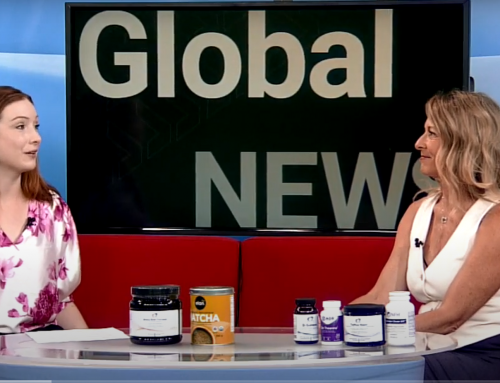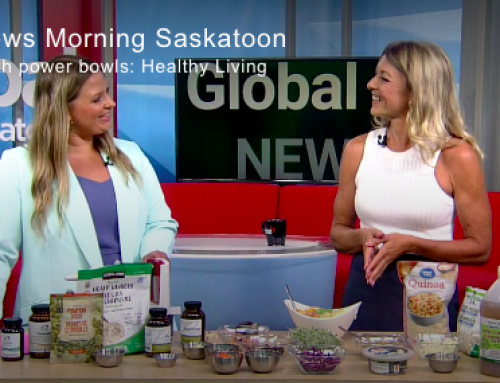In this Healthy Living segment, Dr. Fleury sits down with Global TV’s Chantal Wagner to review the results of her food sensitivity test.
Dr. Fleury explains how checking for food sensitivities can be an important part of taking a proactive approach towards your health. Oftentimes, people don’t notice that the foods that they are eating may be causing symptoms until they eliminate those foods then reintroduce them.
Watch the interview or keep reading to learn how you can use your food sensitivity results to fine tune your nutritional plan.
Chantal: Today on Healthy Living we are discussing food sensitivity. Naturopathic Doctor Dr. Jacqui Fleury joins us this morning. Good morning Jacqui.
Dr. Fleury: Good morning Chantal.
Chantal: Good morning, and a special edition of Healthy Living, because I came into your office a couple weeks ago, and you conducted a food sensitivity test, so just a little finger prick, got a blood sample. What did we find out?
Dr. Fleury: Well Chantal, just as a reminder of why we were doing this process is we were wanting to determine whether or not you have a food sensitivity, which is very different than a food allergy. You’ve indicated you don’t have food allergies. But a food sensitivity often goes unrecognised, because we don’t feel any different when we eat the food, and yet it might be stimulating our immune system unknowingly, and 70% of your immune system is in your gut.
So you were a good sport about coming into the clinic, and we did a collection to determine whether or not there’s anything more we could be doing for you to keep you healthy and strong and to keep your immune system strong and vital, and what we learnt about you is you have a food sensitivity to anything that comes from a cow, sheep or goat, so that’s cheese, yogurt, sour cream, cottage cheese, milk, and eggs are potentially a sensitivity for you, soy products, potatoes, certain nuts and seeds, and coffee, and you indicated that you don’t really notice or feel any different when you eat these foods, possibly a bit of a reaction with coffee, and so our goal would be, because you’ve already stated that you have great energy, and you’re strong and vital and have robust health, is to see if there’s anything more you could be doing to dial in your nutrition specifically to you.
Chantal: Okay so what are some of those things then? How could I take it to the next step, the next level, and play around with the sensitivities?
Dr. Fleury: It’s a great question. So oftentimes we don’t know that a food is bothering us until we eliminate it, so the gold standard is elimination followed by reintroduction, and often an elimination of at least three to six months, and then when you bring that food back in, oftentimes you may feel something.
So on your report there were colours that were red and yellow. Those are the foods that you’re highly reactive to, and then there are the foods that are in the green zone, which means that you show a very low igG reaction to them, so really giving your digestive tract and your immune system a break for about three to six months, so eliminating those foods 100%, and then after three to six months, then you reintroduce those foods to see what you notice, and oftentimes people will indicate that they had no idea that they weren’t noticing something, because they were eating the food regularly. So when you eliminate it, and then you reintroduce it back in, often you’ll notice some symptoms.
Sometimes people notice that they’re maybe retaining less fluid. They didn’t even realize they were retaining fluid. So it would be very interesting to see what you notice given you’re already really healthy. So that’s the proactive approach to health. Even though we’re healthy, is there more we could be doing to be even healthier and stronger?
For the full interview, watch the clip above.
To learn more about Dr. Fleury or to book an appointment, click here.





